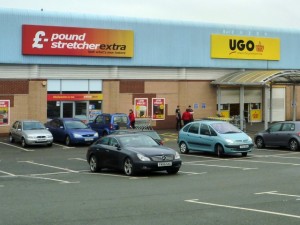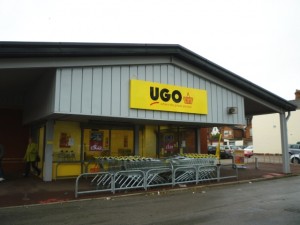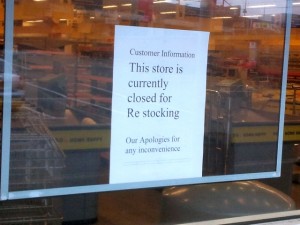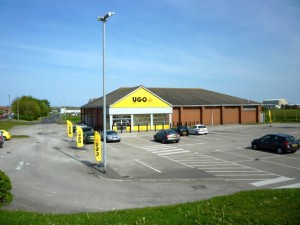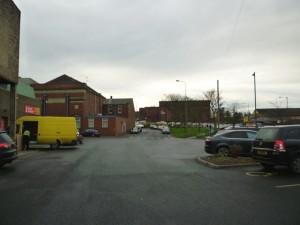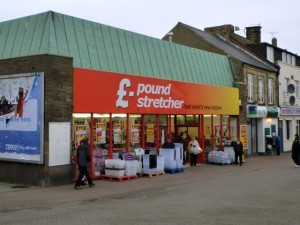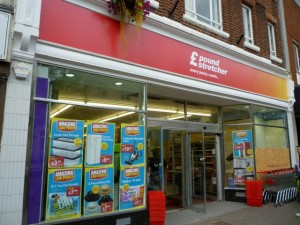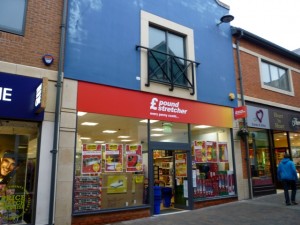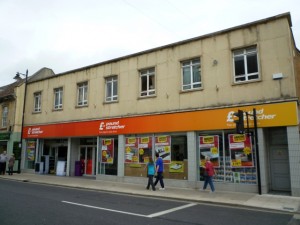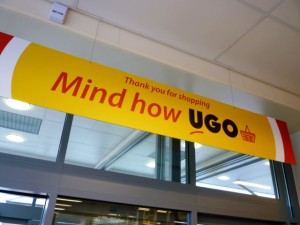After I first revealed that UGO, the fledgling supermarket chain, was set to be sold, there was understandably plenty of speculation about who the buyer was. Now that we know it’s the expanding variety retailer Poundstretcher, what exactly can we make of the acquisition?
Just to recap, the pre-pack administration deal as finally announced sees all of UGO’s store staff transfer to Poundstretcher – saving 300 jobs – but only 18 of the actual stores, rather than all 20 as had been initially claimed.
I understand that the two stores not being acquired are those in Nuneaton and Eton Street (Hull), both of which will, I believe, revert back to the landlord. Meanwhile, the rest will reportedly be rebranded as Poundstretcher as soon as possible.
Neither of those two stores’ omission from the deal is entirely surprising, however. The Eton Street store, which I visited back in October, is close to an existing Poundstretcher in Hessle Road, while the Nuneaton store is right next door to an established Poundstretcher Extra. Clearly the ‘closed for restocking’ sign that I spotted in the Nuneaton UGO on 7 February – two days before the Poundstretcher news was confirmed – was a red herring as far as that particular shop was concerned.
The deal is good news for the four North East UGO stores and their staff, located in Ashington, Eston, Hartlepool and Stanley. Both Ashington and Eston are new locations for Poundstretcher, while the UGO Hartlepool site complements the existing Tees Bay Retail Park Poundstretcher at the opposite end of the town.
Stanley’s a more interesting case, however, given that the town’s established Poundstretcher in Front Street and the UGO in Scott Street sit just across a car park from each other. Coincidentally, in taking a shot of the Stanley UGO store’s setting back in December, I just captured the signage at the back of Poundstretcher as well (below).
I’m curious to see whether, in the longer term, Poundstretcher retains both sites, and, indeed, the extent to which it maintains a significant grocery offer within its acquired UGO estate.
Rescuing UGO is Poundstretcher’s second retail good deed in recent months, having already acquired the bulk of the Alworths estate – following the collapse of the ’son-of-Woolworths’ chain – back in May last year. Usefully, those ex-Alworths locations, mainly in Scotland and the south of England (such as Tiverton and Didcot, below), complement UGO’s store base in the North West, North East and Yorkshire.
Additionally, Poundstretcher has bought up quite a number of former Woolworths sites in its own right, in town-centre locations such as Camborne, North Berwick and Melksham. In a challenging economic climate, Poundstretcher’s growth through both organic store openings and acquisitions is clearly to be welcomed; indeed, the UGO purchase has taken the chain’s store count above 400 for the first time.
As it integrates the UGO stores into its estate, however, I hope Poundstretcher doesn’t lose sight of those elements that did work within the UGO chain.
Clearly, the very fact that UGO had to be rescued demonstrates that there were significant flaws in the model – most obviously in the product offer and pricing. In other respects, though, UGO had some very positive features, notably in terms of its consistent and effective brand implementation (e.g. instore signage and offers leaflets), and the stores’ cleanliness, tidiness and uncluttered aisles.
At Poundstretcher, in contrast, the product offer is really strong – more so than many people realise – but is let down, as I’ve argued previously, by the poor-quality and cluttered store environment and a general lack of attention to detail, even in its newly opened stores. As the chain gets bigger, the window display that I spotted in Wombwell and the advertising board seen at Newcastle simply don’t cut it against slicker competitors such as Wilkinson, Home Bargains or Discount UK.
The potential is clear – if Poundstretcher can combine its own strengths with the complementary ones of UGO, this could be an acquisition that helps transform the business for the better, rather than one that merely expands it.
